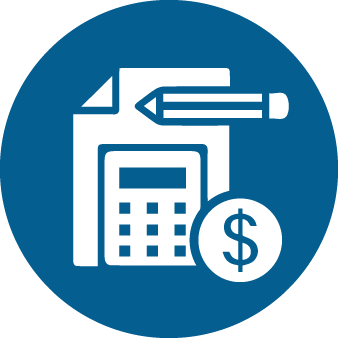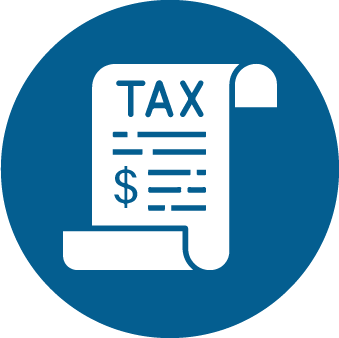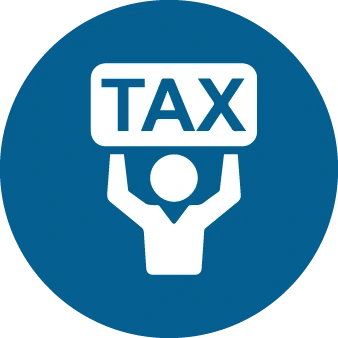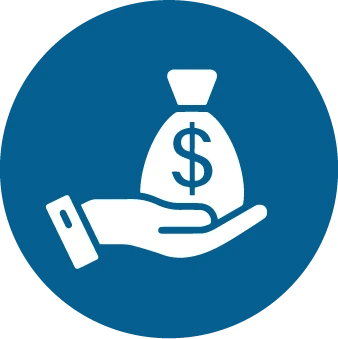Knowing how to handle a tax lien in New Jersey is key for property owners. A tax lien can lead to serious issues, like losing your property and harming your credit score. This guide will help you understand how to pay off a tax lien in NJ. It will cover important details about tax liens, payment choices, and the steps to redeem your property.
Working with experienced accounting firms in NJ can help property owners navigate the lien redemption process smoothly.
Your location can impact your liability—see what taxes apply in Clifton, NJ.
Tax Liens in New Jersey
A tax lien is a legal claim on property when taxes are unpaid. In New Jersey, it can happen for both state and federal tax debts. These liens can seriously affect your property and credit score. It's important for property owners to understand tax liens well.
Tax liens come after many warnings about unpaid taxes. They are a warning from the government about financial issues with your property. If you don't pay your taxes, the state can put a lien on your property. This way, the government can get back the money it lost.
Many homeowners in New Jersey face losing their property because of unpaid taxes. Knowing about tax liens helps you act fast. You can pay on time or appeal if you think the lien is unfair.
Understanding tax liens can change how you make financial decisions. Property owners should talk to lawyers to know their rights. By understanding tax liens, you can avoid bigger financial problems.
Find out when you can expect your NJ rebate check and how to use it toward your lien.
What are the types of Tax Lien?
There are different types of tax liens:
- Property tax liens happen when local authorities tax real estate.
- Federal tax liens are from the IRS for unpaid federal taxes.
Each lien affects property ownership and financial duties differently.
The lienholder has legal rights to the property. This can lead to the government seizing assets to pay tax debts. Knowing this is important for those facing tax issues, as it explains the risks of not paying taxes.
Explore legal ways to stop paying property tax in NJ if you qualify for exemptions.
Businesses dealing with tax liens can benefit from NJ part-time CFO services to ensure financial oversight and strategic planning.
How do I pay off a tax lien in NJ?
If you need to redeem a tax lien in New Jersey, follow these essential steps:
The NJ Property Tax Relief Fund may provide financial assistance for paying off liens.
1. Submit a Written Request
You must formally request a redemption statement from the Tax Collector in writing. This request should include:
- The anticipated date of payment
- A statement confirming your legal interest in the property
Do not contact the lien holder directly at any time.
2. Verify Eligibility & Identity
Only interested parties as defined by NJ Tax Sale Law have the right to redeem a lien. You may be required to provide proof of identity to proceed.
3. Accepted Payment Methods
To complete the redemption process, payment must be made using one of the following:
- Cash
- Certified check
- Money order
Personal checks and electronic payments are typically not accepted.
4. Completion & Lien Release
Once your payment is received:
- The Tax Collector will notify the lien holder
- The lien holder will be required to submit the lien certificate
- The certificate will then be forwarded to you as confirmation of redemption
By following these steps, you can efficiently redeem a tax lien while ensuring compliance with NJ regulations.
Find out who is eligible for the NJ property tax relief credit and how it might help reduce your lien burden.
Check if you’re eligible for a property tax deduction in NJ to help offset your lien balance.
Precision Accounting Intl: Expert Tax Relief & Accounting in Clifton, NJ
Struggling with tax issues? Precision Accounting Intl in Clifton, NJ, is your trusted partner for expert tax relief and accounting solutions.
Whether you're facing IRS challenges, tax liens, or need strategic financial planning, our team provides personalized, results-driven solutions to protect your assets and resolve tax burdens efficiently.
If you’re dealing with a lien or IRS issues, our tax settlement services near you provide strategic solutions tailored to your financial situation.
With decades of experience, we specialize in tax preparation, audit defense, and financial consulting, ensuring compliance while maximizing your savings. Don’t let tax problems disrupt your peace of mind—contact Precision Accounting Intl today for professional guidance and proven tax relief strategies.
In addition to tax relief, we also offer reliable bookkeeping services in Clifton NJ to help property owners maintain accurate financial records and avoid future tax issues.
Curious about digital tools? Learn what is QuickBooks used for to better manage your business or personal finances.
Find a qualified tax accountant in Clifton, NJ to help resolve your lien efficiently.
How to Make Tax Payments in New Jersey
Paying your property taxes on time is essential to avoid penalties. Here’s everything you need to know about accepted payment methods and processing times.
1. Accepted Payment Methods
You can pay your taxes using:
- Cash
- Personal checks (not accepted once the tax sale process begins)
- Certified checks
- Money orders
- Online payments (via checking/savings accounts, debit cards, or credit cards)
Important: If your property is listed for a tax sale, only cash, certified checks, or money orders will be accepted.
2. Payment Submission & Processing Times
- In-Person Payments: Payments can be made directly at the tax office.
- Mailed Payments: Allow at least 3-5 days for delivery. Postmarked dates are not accepted.
- Bank’s Online Bill Pay: If you use your bank’s online payment service, be aware that the bank mails a physical check to the tax office. This process takes 7-10 days.
3. Requesting a Receipt
If you need a receipt for your payment:
- Include the entire tax bill with your payment.
- Provide a self-addressed, stamped envelope for the receipted bill to be returned to you.
4. Online Payment Restrictions
Online payments are available for tax and utility bills.
Any fees for using this service are paid directly to the payment processor, not to the Borough.
If your property is scheduled for a tax sale, you cannot use the online system within 50 days of the sale date (NJSA 5:30-9.2).
By understanding these guidelines, you can ensure a smooth payment process and avoid unnecessary delays or penalties.
Understand the penalty for late tax payments in NJ, which often leads to liens.
How can I make a Payment online?
In-Person Payments
- Accepted Forms: Cash, certified checks, or money orders.
- Processing Time: Immediate upon payment.
Mail-In Payments
- Accepted Forms: Certified checks or money orders.
- Processing Time: Typically 3-5 business days after receipt.
- Important: Postmarked dates are not accepted, so ensure timely arrival.
Bank Bill Pay Services
- Some banks allow you to set up bill payments for tax lien redemptions.
- Processing Time: 7-10 business days, as banks generate and mail a physical check.
- Important: Confirm with your local tax collector whether this method is accepted.
Wire Transfers (Limited Availability)
- Some municipalities may accept wire transfers for tax lien redemptions.
- Processing Time: 1-2 business days.
- Important: Contact the tax office for instructions before initiating a wire payment.
Restrictions & Considerations
- Online Payments: Most municipalities do not allow online payments for tax lien redemptions. Payments must be made with guaranteed funds.
- Payment Accuracy: The exact amount due must be paid—overpayments or underpayments may result in processing delays.
- Receipts: If you require a receipt, include a self-addressed, stamped envelope with your mail-in payment.
- Tax Sale Timeline: Once a tax sale process has started, personal checks and online payments are no longer accepted—only cash, certified checks, or money orders will be allowed.
- Before making a payment, it’s always best to contact your local tax collector to confirm accepted payment methods and any specific requirements.
See how much $250,000 is after tax in NJ to better plan your finances.
How to Handle Tax Liens from Different Authorities
It's important to know about federal tax liens if you're dealing with different types of liens. These liens come from federal, state, and local governments. Each has its own rules and effects.
Federal tax liens happen when you don't pay federal taxes. Local liens are for unpaid property taxes or fees. Knowing the difference is key.
State tax liens have their own laws. They can be different from federal and local liens. It's vital to understand these differences.
They affect how you handle the lien, repayment options, and what happens to your property. You need a plan for each type of lien, based on the specific laws.
Local liens can lead to foreclosure if you don't pay property taxes. Knowing how each lien works helps manage your debt. Getting legal advice is often necessary to deal with these liens.
Understand how long NJ can collect back taxes to assess your long-term financial risks.
Companies should also consider using business tax services in NJ to manage liabilities efficiently.
Discover the type of NJ accountant best suited for small businesses dealing with liens and tax issues.
Hire an experienced accountant for your NJ small business to avoid future tax problems.
Judgment Payoff Request Form
The judgment payoff request form is key in solving tax lien issues. Knowing when to use it can make the payoff process easier. It's needed when someone wants to settle any outstanding tax judgments.
It's important to fill out the form correctly to avoid delays. You should include the debtor's name, the court case number, and the amount owed. Any mistakes can cause more problems and slow down the process.
| Item | Description |
|---|---|
| Debtor Name | The full legal name of the individual or entity responsible for the judgment. |
| Court Case Number | The unique identifier associated with the court ruling. |
| Amount Owed | Include the total amount required to satisfy the judgment. |
| Contact Information | Provide the debtor's current mailing address and phone number for correspondence. |
After filling out the form, send it to the right court or tax office. Being on time is critical to avoid extra penalties. Doing this right helps clear up tax liens and their duties smoothly.
Consulting a qualified tax accountant New Jersey is a proactive step to manage state tax debts effectively.
Use the updated IRS tax brackets to estimate your total tax liability and determine how much you’ll need to pay to remove your lien.
Prevent future tax liens by investing in professional bookkeeping services in NJ.
Steps After Paying Off the Tax Lien
After paying off the tax lien, it's important to document everything properly. Knowing how to handle this situation in NJ is key for property owners.
First, get a release certificate. This document proves the tax lien is paid off. To get it, contact your local tax office or the lien issuer. You might need to show payment proof like receipts or bank statements.
After getting the release certificate, update your property records. Tell your local government that the lien is cleared. This keeps your records accurate and shows you're financially responsible.
It's wise to keep the release certificate safe. You might need it for future financial dealings. Following these steps helps you stay compliant and protects your financial well-being.
Make sure to gather all necessary IRS tax forms and publications to properly resolve your lien.
Follow record retention guidelines to keep essential tax documents in case of future disputes or audits.
Once your lien is cleared, it's wise to refocus on long-term financial goals like retirement planning in NJ to build a more secure future.
After resolving your lien, it’s a good idea to review year end tax planning for businesses to avoid future liabilities.
Conclusion
Understanding how to pay off a tax lien in New Jersey is key. Knowing what a tax lien is and its effects helps people take action. They can then look into different payment plans and learn about the NJ tax lien redemption process.
It's important to handle tax liens early on. People with liens should reach out to local and state resources for help. This way, they can make smart financial choices.
Being well-informed and organized can really help with tax liens. With the right knowledge, individuals can clear their liens and move towards a better financial future. This future is free from the stress of unpaid taxes.
Learn about ANCHOR tax relief in NJ and how it could reduce your tax lien burden.
FAQ
How do I pay off a tax lien in NJ?
To pay off a tax lien in New Jersey, submit a written request to the Tax Collector for a redemption statement. Payments must be made via cash, certified check, or money order—personal checks and online payments are typically not accepted. Once paid, the lienholder will release the lien certificate.
What if I have a tax lien on my property and want to sell it?
You must clear the tax lien before selling the property. Either pay it off before closing or negotiate with the buyer to cover the lien as part of the sale agreement.
How do I pay the lien after the sale?
If the property is sold with an unpaid tax lien, contact the lienholder to complete the payment. Ensure proper documentation is provided so the lien is legally removed from records.
Can I pay off a tax lien in NJ online?
Most municipalities do not allow online payments for tax lien redemptions. Payments must be made using cash, certified check, or money order to ensure proper processing. Always check with the local tax office for accepted payment methods.
What is the NJ tax lien redemption process?
The redemption process includes:
- Requesting a redemption statement from the Tax Collector.
- Verifying eligibility and submitting proof of identity.
- Paying with certified funds (cash, certified check, or money order).
- Receiving a lien release certificate confirming the debt is cleared.
How do I complete the judgment payoff request form?
Fill out the judgment payoff request form with key details, including:
- Debtor's full legal name
- Court case number
- Total amount owed
- Current contact information
Submit the form promptly to avoid delays in lien resolution.
What if I owe NJ state taxes?
If you owe NJ state taxes, contact the NJ Division of Taxation to explore payment plans or settlement options. Unpaid state taxes can result in a state tax lien on your property.
What are the payment options available for settling a tax lien?
You can settle a tax lien using:
- In-person payments (cash, certified check, money order)
- Mail-in payments (certified check, money order, allow 3-5 days)
- Bank bill pay services (7-10 days processing)
- Wire transfers (limited availability, check with your tax office)
Online payments are not accepted for tax lien redemptions in most NJ municipalities.
Are there consequences if I do not pay my tax lien?
Yes, unpaid tax liens can lead to:
- Property seizure or foreclosure
- Severe credit damage
- Legal action from the lienholder
Act quickly to redeem the lien and avoid financial and legal consequences.
What types of tax liens are there in New Jersey?
New Jersey has three main types of tax liens:
- Property tax liens (issued by local governments for unpaid property taxes)
- Federal tax liens (from the IRS for unpaid federal taxes)
- State and municipal liens (for unpaid NJ state taxes or local fees)
Each type has different resolution methods and legal consequences, so understanding the specifics is crucial.
Related Articles
Services provided for you
Bookkeeping Services in Clifton, NJ
We serve a range of industries and customers, in an organized, friendly, and reliable way.
Business Tax Services
We are in a position to identify tax planning shots that reduce both your current and future tax liabilities.
Individual Tax Services
We gauge our worth by the personal and business successes of our clients and industries.
Payroll Services
For small and large corporations, payroll systems, highly qualified payroll experts support our services. Our primary objective is to provide customized services and highly favorable pricing for you.
Non-Profit Organization Services
Precision Accounting Intl can assist you set up and maintain your non-profit organizations nontaxable standing by handling all the authority reportage for you.
Part-Time CFO Services
If you"re ready enough to be in this role. Our Part-Time CFO Service Package provides you with a knowledgeable financial manager who will work with you to help guide the progress of your business.











